The director of the National Institutes of Health (NIH) said the U.S. could decide in the next few weeks whether or not to approve COVID-19 vaccine booster shots for elderly Americans.
Dr Francis Collins said health officials have been reviewing case numbers in the U.S. ‘almost daily’ as well as the situation in other countries such as Israel, where preliminary studies suggest the vaccine’s protection against serious illness drops.
Israel has been offering a coronavirus booster to people over 60 who were already vaccinated more than five months ago.
No U.S. decision has been made because cases here so far still indicate that people remain highly protected from COVID-19, including the Indian ‘Delta’ variant, after receiving the two-dose Pfizer or Moderna regimen or the one-shot Johnson & Johnson vaccine.
But top experts made it clear they are preparing for the possibility that the time for boosters may come sooner than later.
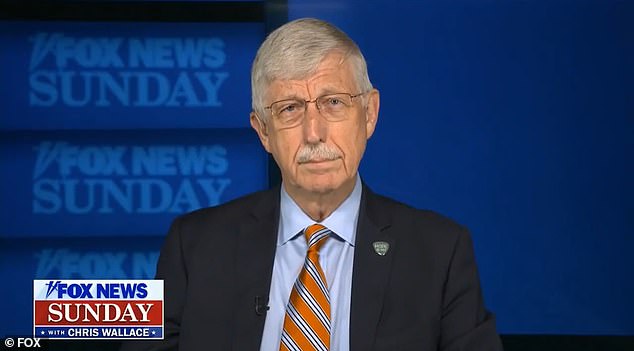
NIH director Dr Francis Collins said on Fox News Sunday (pictured) that the U.S. approve COVID-19 vaccine boosters for elderly Americans within the next few weeks
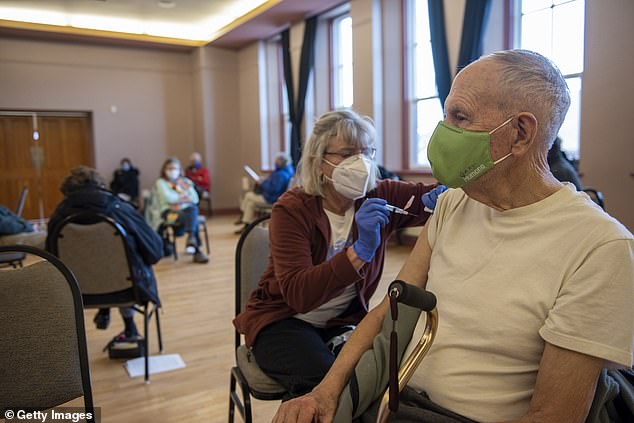
Collins said studies have shown that Covid shots may start to wane in its effectiveness and that the Indian ‘Delta’ variant has been hard to control. Pictured: Nurse Mariam Skertich administers a COVID-19 vaccine to a patient at a vaccination clinic for seniors 80 years and older in Livingston, Montana, January 2021
‘There is a concern that the vaccine may start to wane in its effectiveness and Delta is a nasty one for us to try to deal with,’ Collins told Fox News Sunday.
‘The combination of those two means we may need boosters, maybe beginning first with health care providers, as well as people in nursing homes, and then gradually moving forward’ with others, such as older Americans who were among the first to get vaccinations after they became available late last year.
He said because the Delta variant only started hitting the U.S. hard in July, the ‘next couple of weeks’ of case data will help the U.S. make a decision.
In a separate interview, Moderna President Stephen Hoge said seeing some ‘breakthrough’ infections emerge among the vaccinated within six months has been surprising, even if most symptoms so far have not been life-threatening.
‘I think that suggests we are going to need booster vaccines to get through the winter,’ he told Fox News Channel’s Sunday Morning Futures.
Last week, the Food and Drug Administration said people with weakened immune systems can get an extra dose of the Pfizer or Moderna vaccines to better protect them as the Delta variant continues to surge.
Previously, health experts had said that there was no evidence to suggest that fully vaccinated Americans needed booster shots.
However, more and more research has shown that people with weakened immune systems have low or undetectable antibody levels, even after two doses.
A study in May found that all cancer patients developed fewer antibodies after being vaccinated compared to healthy participants and 10 percent barely developed antibodies at all.
Another study in June looked at 30 organ transplant recipients and found that 24 developed negative antibody levels – meaning they did not have any immune-fighting cells – after two doses of the Pfizer-BioNTech or Moderna vaccines.
The findings are worrying because immunocompromised people are already at an increased risk of hospitalization or death from the virus.
This makes COVID-19 immunity even more crucial for this population.
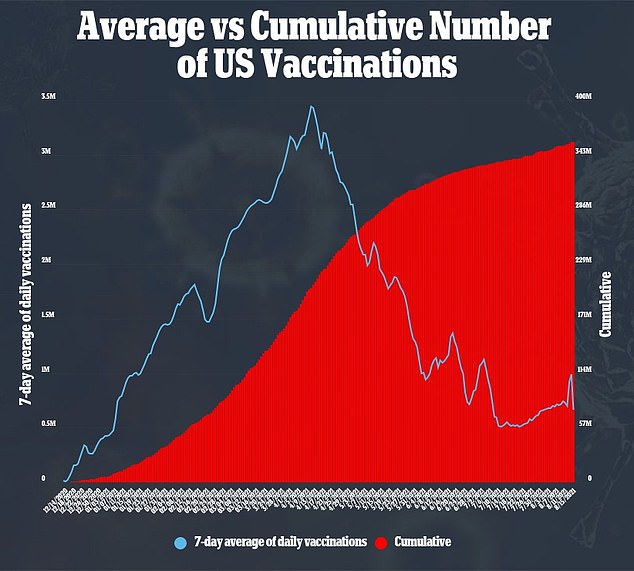
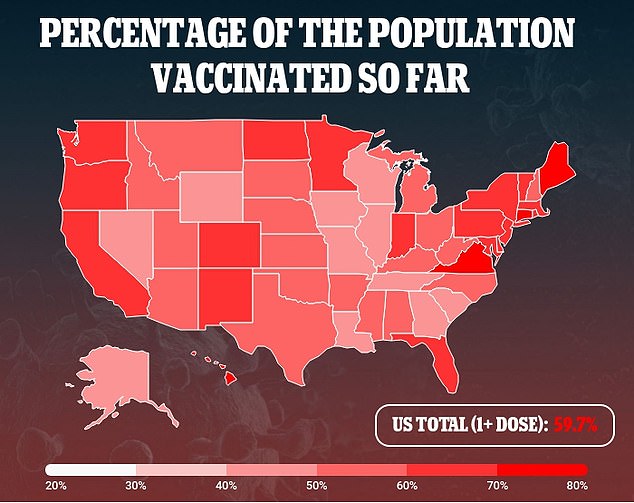
However, third doses may be a way to boost antibody levels.
For example, the study about organ transplant patients found that one-third of patients with negative antibody levels from the first two doses now showed an increase after a third dose.
While the U.S. currently is seeing an average of about 130,000 new infections a day – a 700 percent increase from the beginning of July – that number could jump in the next couple weeks to 200,000, a level not seen since among the pandemic’s worst days in January and February, Collins said.
Both Collins and Dr Anthony Fauci, the nation’s top infectious disease expert, stressed that the best way to stem the virus is for the unvaccinated to get their shots.
Currently, about 60 percent of the U.S. population has gotten at least one dose and nearly 51 percent are fully vaccinated, according to the Centers for Disease Control and Prevention.
Areas with low vaccination rates have been particularly hit hard with infections, such as Louisiana, Texas, Florida and Mississippi.
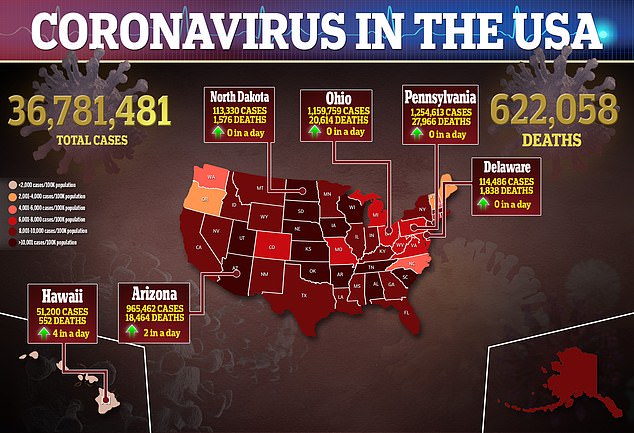
Source link : https://www.dailymail.co.uk/health/article-9895925/US-mulls-COVID-vaccine-boosters-elderly-early-fall.html











